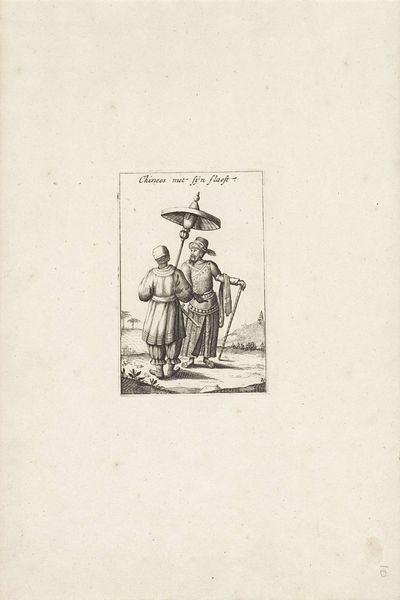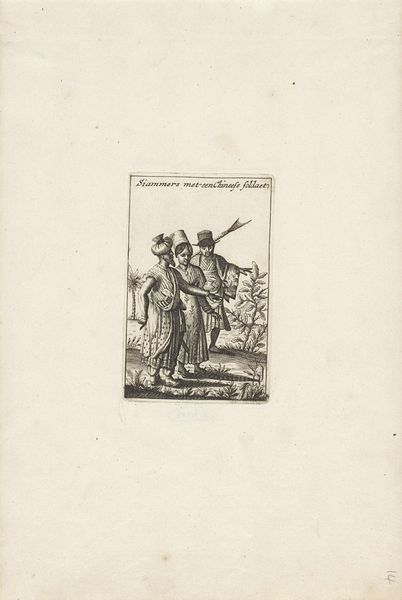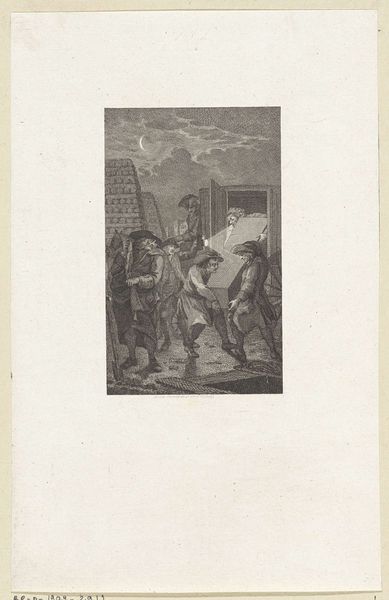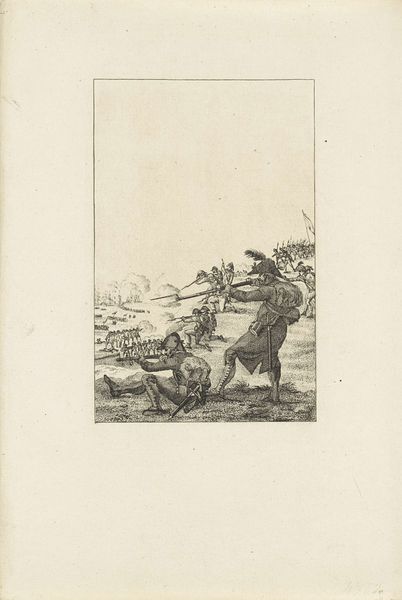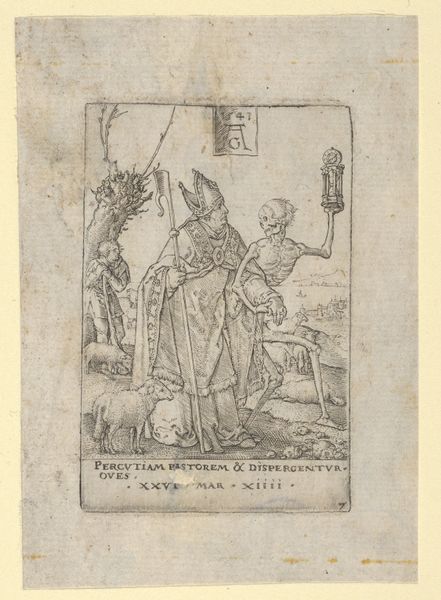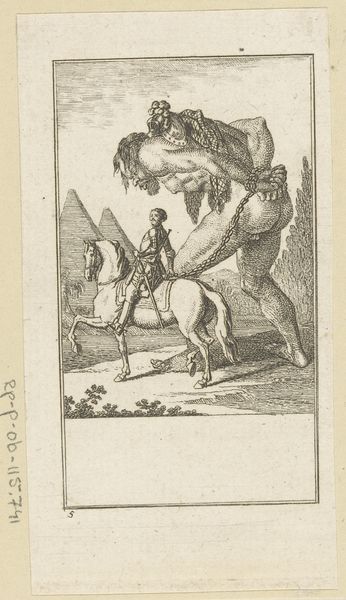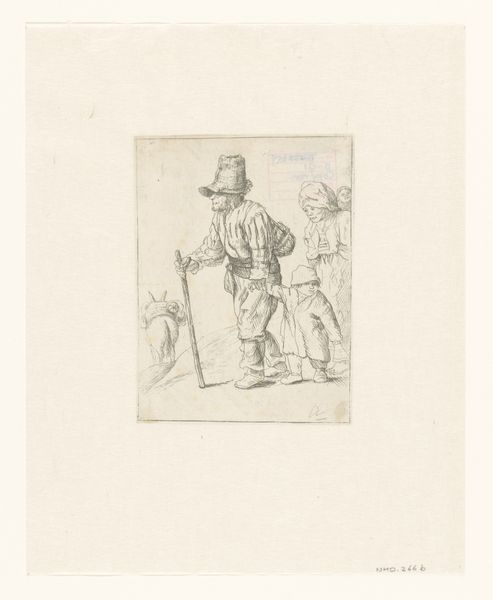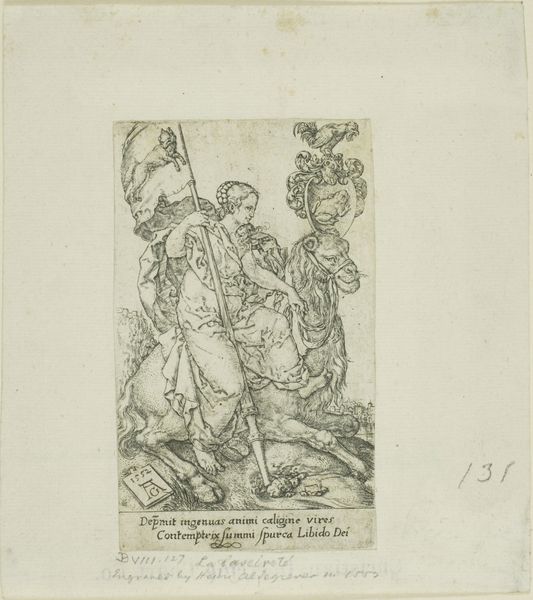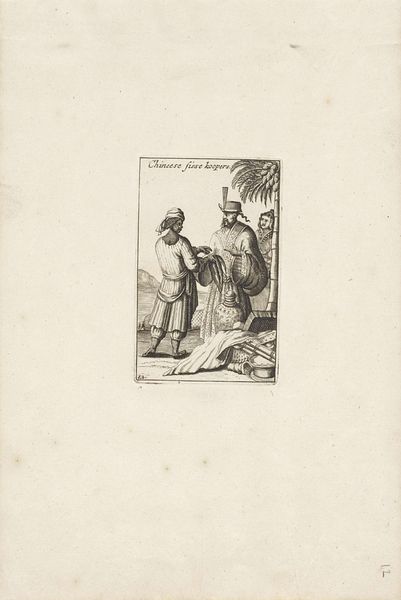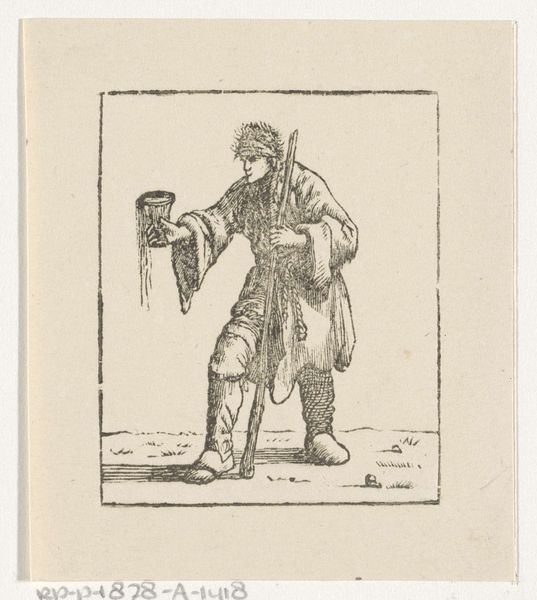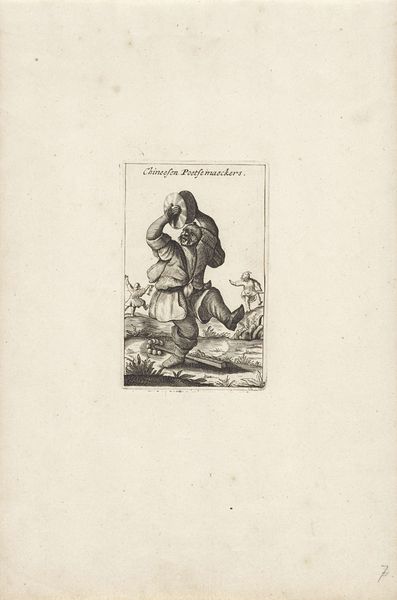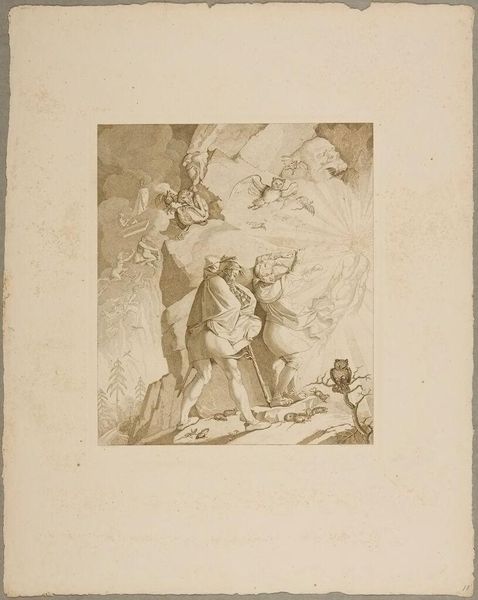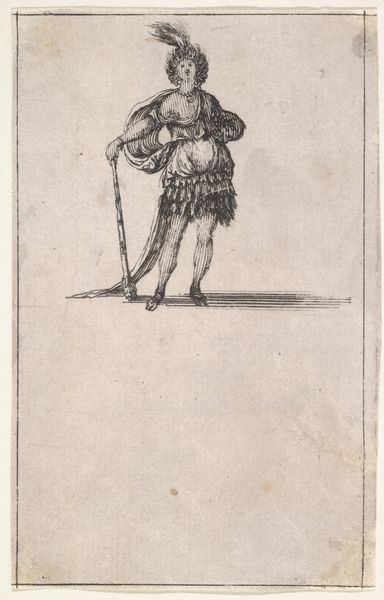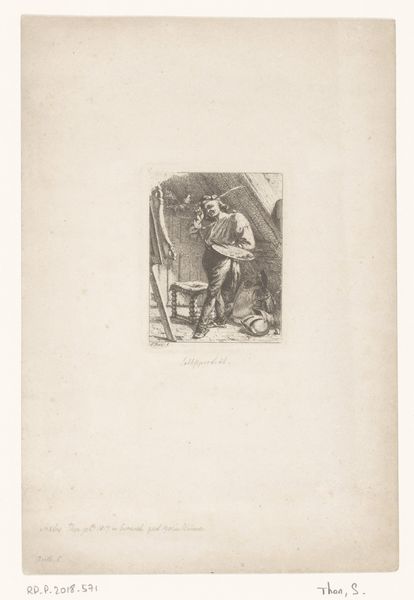
print, engraving
# print
#
figuration
#
genre-painting
#
northern-renaissance
#
engraving
Dimensions: height 45 mm, width 38 mm
Copyright: Rijks Museum: Open Domain
This tiny print, “Dancing Peasants,” was made in the 16th century by an artist known only as Monogrammist FS. It is an etching, created by incising lines into a metal plate, inking the surface, and then using a press to transfer the image to paper. The material character of the print is paramount to its effect. The etched lines, though small, have a crispness that gives the figures definition. Notice the varying line weights – some are delicate, others bold, creating a sense of depth and shadow. Consider the amount of labor involved, the expertise in manipulating metal and operating the printing press. Prints like these were relatively inexpensive, making images accessible to a wide audience. So while this may seem a simple picture of revelry, it gives us insight into the social lives of common folk. The dance becomes a form of expression, a joyful act captured through skilled labor, and distributed through the machinery of early capitalism. By looking closely at the making, we see the wider world of culture and commerce.
Comments
No comments
Be the first to comment and join the conversation on the ultimate creative platform.
